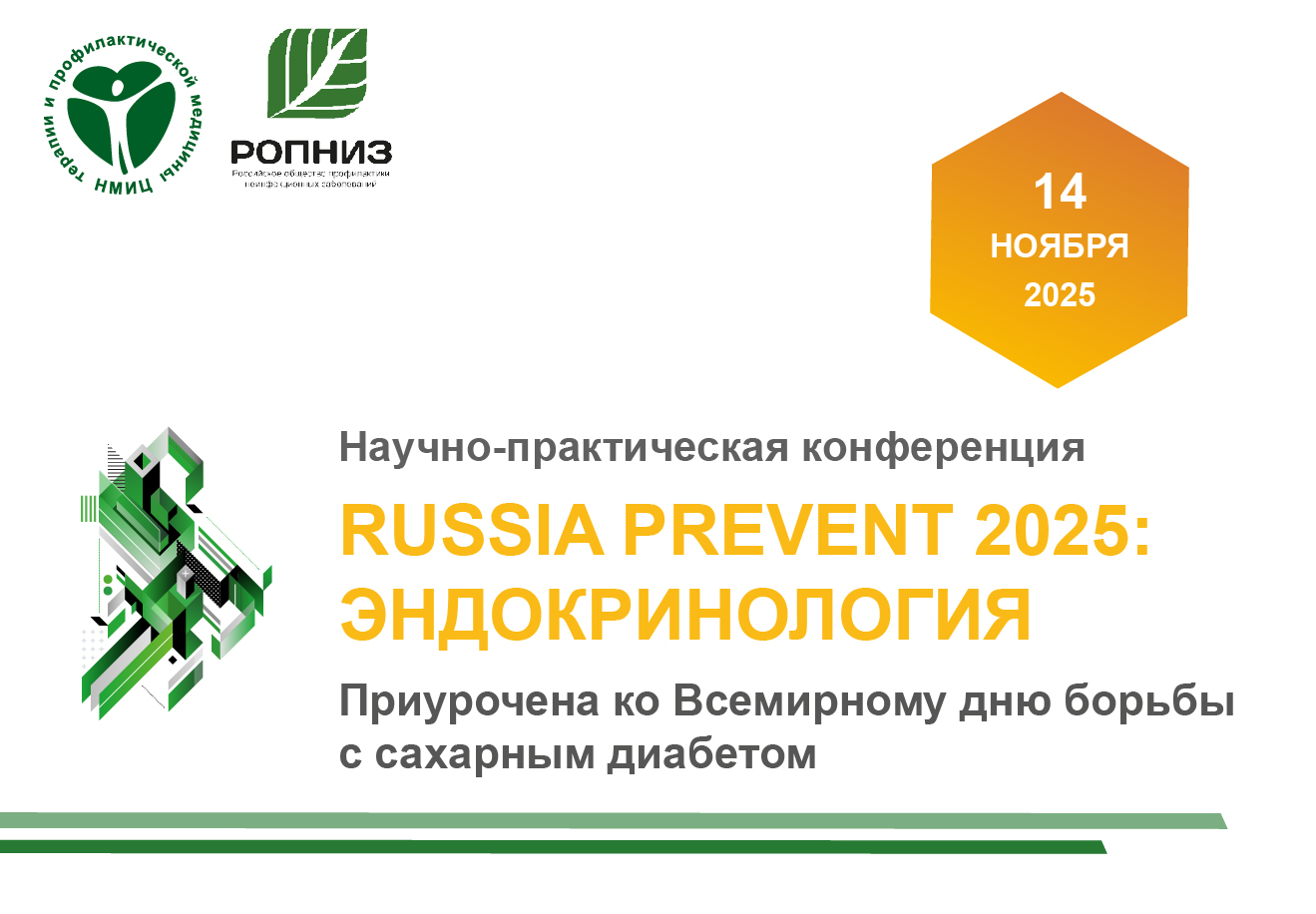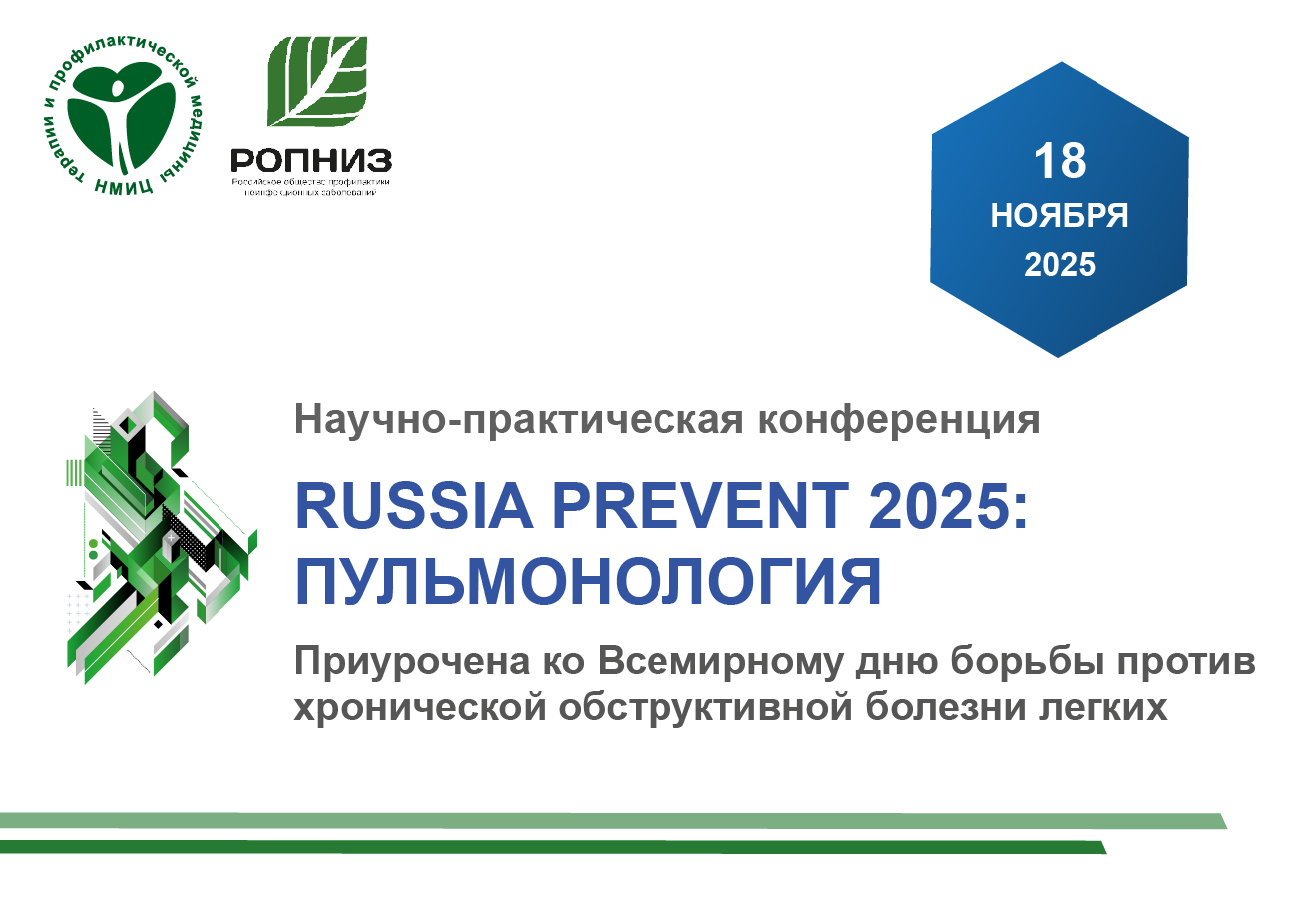Predictive value of brain natriuretic peptide for cardiovascular risk assessment in non-cardiac surgery
https://doi.org/10.15829/1728-8800-2020-2558
Abstract
The incidence of postoperative complications has decreased significantly over the past 30 years, but the consequences after surgery are still a serious clinical problem. Identifying intra- and postoperative myocardial injury is a challenging task, since almost half of all complications occur in patients who were not initially at high risk without a history of heart disease. Currently, several large studies and meta-analyzes over the past 5 years recommend the determining brain natriuretic peptide (BNP) levels for risk stratification in all patients scheduled for elective non-cardiac surgery in order to improve the postoperative outcome. Monitoring of BNP level during the entire perioperative period can contribute to a better understanding of the pathophysiology of cardiac complications in noncardiac surgery. The introduction of new criteria will qualitatively improve care to patients with comorbidities, reduce the number of postoperative complications and improve interdisciplinary interactions of specialists.
About the Authors
O. N. DzhioevaMoscow
O. M. Drapkina
Russian Federation
Moscow
References
1. Fleisher L.A., Fleischmann K.E., Auerbach A.D., Barnason S.A., Beckman J.A., Bozkurt B., Davila-Roman V.G., Gerhard-Herman M.D., Holly T.A., Kane G.C., et al. 2014 ACC/AHA guideline on perioperative cardiovascular evaluation and management of patients undergoing noncardiac surgery: A report of the American college of cardiology/American heart association task force on practice guidelines. J. Am. Coll. Cardiol. 2014;64:e77–e137. doi: 10.1016/j.jacc.2014.07.944.
2. Kristensen SD, Knuuti J, Saraste A, et al. 2014 ESC/ESA Guidelines on non‐cardiac surgery: cardiovascular assessment and management: the Joint Task Force on non‐cardiac surgery: cardiovascular assessment and management of the European Society of Cardiology (ESC) and the European Society of Anaesthesiology (ESA). European Heart Journal 2014; 35: 2383– 431. doi: 10.1097/EJA.0000000000000150.
3. Duceppe E, Parlow J, MacDonald P, Lyons K, McMullen M, Srinathan S, Graham M, Tandon V, Styles K, Bessissow A, Sessler DI, Bryson G, Devereaux PJ. Canadian Cardiovascular Society Guidelines on Perioperative Cardiac Risk Assessment and Management for Patients Who Undergo Noncardiac Surgery. Can J Cardiol. 2017 Jan;33(1):17-32. doi: 10.1016/j.cjca.2016.09.008.
4. De Hert S., Staender S., Fritsch G., Hinkelbein J., Afshari A., Bettelli G., Bock M., Chew M.S., Coburn M., De Robertis E., et al. Pre-operative evaluation of adults undergoing elective noncardiac surgery: Updated guideline from the European Society of Anaesthesiology. Eur. J. Anaesthesiol. 2018;35:407–465. doi: 10.1097/EJA.0000000000000817.
5. Porapakkham P1, Porapakkham P, Zimmet H, Billah B, Krum H. B-type natriuretic peptide-guided heart failure therapy: A meta-analysis.
6. Arch Intern Med. 2010 Mar 22;170(6):507-14. doi: 10.1001/archinternmed.2010.35.
7. Blankenberg S, Zeller T, Saarela O, et al. Contribution of 30 biomarkers to 10-year cardiovascular risk estimation in 2 population cohorts: the MONICA, risk, genetics, archiving, and monograph (MORGAM) biomarker project. Circulation 2010;121:2388–97 doi: 10.1161/CIRCULATIONAHA.109.901413.
8. Wang TJ, Gona P, Larson MG, et al. Multiple biomarkers for the prediction of first major cardiovascular events and death. N Engl J Med 2006;355:2631–9doi: https://doi.org/10.1007/s12170-009-0021-z
9. Karthikeyan G, Moncur RA, Levine O, et al. Is a pre-operative brain natriuretic peptide or N-terminal pro-B-type natriuretic peptide measurement an independent predictor of adverse cardiovascular outcomes within 30 days of noncardiac surgery? A systematic review and meta-analysis of observational studies. J Am Coll Cardiol 2009;54:1599–606 doi: 10.1016/j.jacc.2013.08.1630.
10. Ryding AD, Kumar S, Worthington AM, et al. Prognostic value of brain natriuretic peptide in noncardiac surgery: a meta-analysis. Anesthesiology 2009;111:311–19 doi: 10.1097/ALN.0b013e3181aaeb11.
11. Rodseth RN, Padayachee L, Biccard BM. A meta-analysis of the utility of pre-operative brain natriuretic peptide in predicting early and intermediate-term mortality and major adverse cardiac events in vascular surgical patients. Anaesthesia 2008;63:1226–33 doi: 10.1111/j.1365-2044.2008.05574.x.
12. Rodseth RN, Lurati Buse GA, Bolliger D, et al. The predictive ability of pre-operative B-type natriuretic peptide in vascular patients for major adverse cardiac events: an individual patient data meta-analysis. J Am Coll Cardiol 2011;58:522–9 doi: 10.1016/j.jacc.2011.04.018.
13. PeriOperative ISchemic Evaluation-3 Trial—Full Text View—ClinicalTrials.gov. [(accessed on 19 January 2020)]; Available online: https://clinicaltrials.gov/ct2/show/NCT03505723.
14. Filipovic M., Kindler C.H., Walder B. Anästhesiologie und Reanimation: Perioperative kardiale Abklärung und Therapie im Vorfeld nicht-herzchirurgischer Eingriffe. Swiss Med. Forum Schweiz. Med. 2018;18:1078–1080. doi: 10.4414/smf.2018.03440.
15. Biccard BM, Naidoo P, De Vasconcellos K. What is the best pre-operative risk stratification tool for major adverse cardiac events following elective vascular surgery? A prospective observational cohort study evaluating pre-operative myocardial ischaemia monitoring and biomarker analysis. Anaesthesia 2012;67:389–95 doi: 10.1111/j.1365-2044.2011.07020.x.
16. Shimizu Y, Nishinaga M, Takata J, et al. B-type natriuretic peptide is predictive of hospitalization in community-dwelling elderly without heart diseases. Geriatr Gerontol Int 2009;9:148–54 https://doi.org/10.1186/2049-6958-9-59
17. Wang TJ, Larson MG, Levy D, et al. Plasma natriuretic peptide levels and the risk of cardiovascular events and death. N Engl J Med 2004;350:655–63 doi: http://dx.doi.org/10.1056/NEJMoa031994
18. Witham MD, Gillespie ND, Hutcheon SD, et al. B-type natriuretic peptide is associated with mortality in older functionally impaired patients. J Am Geriatr Soc 2005;53:1991–5 doi: 10.1016/j.jacc.2018.02.071
19. Omland T, Sabatine MS, Jablonski KA, et al. Prognostic value of B-Type natriuretic peptides in patients with stable coronary artery disease: the PEACE Trial. J Am Coll Cardiol 2007;50:205–14 doi:10.1016/j.jacc.2007.03.038
20. Doust JA, Pietrzak E, Dobson A, et al. How well does B-type natriuretic peptide predict death and cardiac events in patients with heart failure: systematic review. BMJ 2005;330:625. doi:10.1136/bmj.330.7492.625
21. Shang C. B-type natriuretic peptide-guided therapy for perioperative medicine?Open Heart 2014;1:e000105. doi: 10.1136/openhrt-2014-000105
22. Gibson SC, Payne CJ, Byrne DS, et al. B-type natriuretic peptide predicts cardiac morbidity and mortality after major surgery. Br J Surg 2007;94 doi:903–9 10.1002/bjs.5690
23. Ford MK, Beattie WS, Wijeysundera DN. Systematic review: prediction of perioperative cardiac complications and mortality by the revised cardiac risk index. Ann Intern Med 2010; 152:26–35 doi: 10.7326/0003-4819-152-1-201001050-00007.
24. Yun KH, Jeong MH, Oh SK, et al. Preoperative plasma N-terminal pro-brain natriuretic peptide concentration and perioperative cardiovascular risk in elderly patients. Circ J 2008;72:195–9 doi:10.1253/circj.72.195
25. Choi JH, Cho DK, Song YB, et al. Preoperative NT-proBNP and CRP predict perioperative major cardiovascular events in non-cardiac surgery. Heart 2010;96:56–62 doi:http://dx.doi.org/10.1136/hrt.2009.181388
26. Toscano, F.V., Apinis, A. & Leff, J.D. Pre-operative Risk Stratification Update for Cardiac and Major Vascular Surgery. Curr Anesthesiol Rep 5, 445–451 (2015). https://doi.org/10.1007/s40140-015-0136-3
27. Cuthbertson BH, Amiri AR, Croal BL, et al. Utility of B-type natriuretic peptide in predicting perioperative cardiac events in patients undergoing major non-cardiac surgery. Br J Anaesth 2007;99:170–6 doi:10.1093/bja/aem158
28. Kistorp C, Raymond I, Pedersen F, et al. N-terminal pro-brain natriuretic peptide, C-reactive protein, and urinary albumin levels as predictors of mortality and cardiovascular events in older adults. JAMA 2005;293:1609–16 doi:http://dx.doi.org/10.1001/jama.293.13.1609
29. McKie PM, Cataliotti A, Lahr BD, et al. The prognostic value of N-terminal pro-B-type natriuretic peptide for death and cardiovascular events in healthy normal and stage A/B heart failure subjects. J Am Coll Cardiol 2010;55:2140–7 doi: 10.1016/j.jacc.2010.01.031.
30. Daniels LB. Natriuretic peptides and assessment of cardiovascular disease risk in asymptomatic persons. Curr Cardiovasc Risk Rep 2010;4:120–7 doi:10.1007/s12170-010-0078-8
31. Fleisher LA, Beckman JA, Brown KA, et al. ; American College of Cardiology Foundation/American Heart Association Task Force on Practice Guidelines, American Society of Echocardiography, American Society of Nuclear Cardiology, Heart Rhythm Society, Society of Cardiovascular Anesthesiologists, Society for Cardiovascular Angiography and Interventions 2009 ACCF/AHA focused update on perioperative beta blockade incorporated into the ACC/AHA 2007 guidelines on perioperative cardiovascular evaluation and care for noncardiac surgery. J Am Coll Cardiol 2009;54:e13–18
32. Wolf PA, Abott RD, Kannel WB. Atrial fibrillation: a major contributor to stroke in the elderly. Arch Intern Med. 1987;147:1561‐1564.
33. Hart RG, Sharma M, Mundl H, et al. Rivaroxaban for stroke prevention after embolic stroke of undetermined source. N Engl J Med. 2018;378:2191‐2201. doi: 10.1056/NEJMc1809065.
34. McIntyre WF, Connolly SJ, Healey JS. Atrial fibrillation occurring transiently with stress. Curr Opin Cardiol. 2018;33(1):58‐65. doi: 10.1097/HCO.0000000000000475.
35. McIntyre WF, Healey JS. Stroke prevention for patients with atrial fibrillation: beyond the guidelines. J Atr Fibrillation. 2017;91(6):1‐7. doi: http://dx.doi.org/10.4022/jafib.1475
36. Gialdini G, Nearing K, Bhave PD, et al. Perioperative atrial fibrillation and the long‐term risk of ischemic stroke. JAMA. 2014;312(6):616‐622. doi: 10.1001/jama.2014.9143.
37. Simmers D, Potgieter D, Ryan L, Fahrner R, Rodseth RN. The use of preoperative B‐type natriuretic peptide as a predictor of atrial fibrillation after thoracic surgery: systematic review and meta‐analysis. J Cardiothorac Vasc Anesth 2015; 29: 389– 95. doi: 10.1053/j.jvca.2014.05.015.
38. Rodseth R.N., Biccard B.M., Chu R., Buse G.A.L., Thabane L., Bakhai A., Bolliger D., Cagini L., Cahill T.J., Cardinale D., et al. Postoperative B-type natriuretic peptide for prediction of major cardiac events in patients undergoing noncardiac surgery: Systematic review and individual patient meta-analysis. Anesthesiology. 2013;119:270–283. doi: 10.1097/ALN.0b013e31829083f1.
39. Cardinale D., Colombo A., Sandri M.T., Lamantia G., Colombo N., Civelli M., Salvatici M., Veronesi G., Veglia F., Fiorentini C., et al. Increased perioperative N-terminal pro-B-type natriuretic peptide levels predict atrial fibrillation after thoracic surgery for lung cancer. Circulation. 2007;115:1339–1344. doi: 10.1161/CIRCULATIONAHA.106.647008.
40. Cardinale D., Sandri M.T., Colombo A., Salvatici M., Tedeschi I., Bacchiani G., Beggiato M., Meroni C.A., Civelli M., Lamantia G., et al. Prevention of Atrial Fibrillation in High-risk Patients Undergoing Lung Cancer Surgery: The PRESAGE Trial. Ann. Surg. 2016;264:244–251. doi: 10.1097/SLA.0000000000001626.
41. Wazni O.M., Martin D.O., Marrouche N.F., Latif A.A., Ziada K., Shaaraoui M., Almahameed S., Schweikert R.A., Saliba W.I., Gillinov A.M., et al. Plasma B-type natriuretic peptide levels predict postoperative atrial fibrillation in patients undergoing cardiac surgery. Circulation. 2004;110:124–127. doi: 10.1161/01.CIR.0000134481.24511.BC
42. Nojiri T., Maeda H., Takeuchi Y., Funakoshi Y., Kimura T., Maekura R., Yamamoto K., Okumura M. Predictive value of B-type natriuretic peptide for postoperative atrial fibrillation following pulmonary resection for lung cancer. Eur. J. Cardiothorac. Surg. 2010;37:787–791. doi: 10.1016/j.ejcts.2009.09.043.
43. Yoshimura M., Mizuno Y., Nakayama M., Sakamoto T., Sugiyama S., Kawano H., Soejima H., Hirai N., Saito Y., Nakao K., et al. B-type natriuretic peptide as a marker of the effects of enalapril in patients with heart failure. Am. J. Med. 2002;112:716–720. doi: 10.1016/S0002-9343(02)01121-X.
44. Cai G.L., Chen J., Hu C.B., Yan M.L., Xu Q.H., Yan J. Value of plasma brain natriuretic peptide levels for predicting postoperative atrial fibrillation: A systemic review and meta-analysis. World J. Surg. 2014;38:51–59. doi: 10.1007/s00268-013-2284-2.
45. Fabiani I, Colombo A, Bacchiani G, Cipolla CM, Cardinale DM. Incidence, Management, Prevention and Outcome of Post-Operative Atrial Fibrillation in Thoracic Surgical Oncology. J Clin Med. 2019 Dec 23;9(1). pii: E37. doi: 10.3390/jcm9010037.
Review
For citations:
Dzhioeva O.N., Drapkina O.M. Predictive value of brain natriuretic peptide for cardiovascular risk assessment in non-cardiac surgery. Cardiovascular Therapy and Prevention. 2020;19(5):2558. (In Russ.) https://doi.org/10.15829/1728-8800-2020-2558

























































